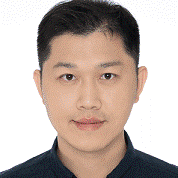ADL142《Rust安全系统编程》开始报名

CCF学科前沿讲习班
The CCF Advanced Disciplines Lectures
CCFADL第142期
主题 Rust安全系统编程
2023年9月16日-18日 北京
本讲座将深入探讨Rust安全系统编程的关键要素,包括rust工具开发、程序语言特性、rust标准库和编译器,以及rust在实际应用开发中的经验分享。讲习班邀请了7位来自国内外著名高校与企业科研机构活跃在前沿领域的专家学者做主题报告。学员将从多个角度体验Rust的安全性、可信性和高效性,了解如何借助Rust的强类型系统、所有权模型和内存安全性特性构建可靠、安全的软件系统。本讲座也提供对rust应用的创新实践,助力学员在软件开发中充分发挥Rust的优势,提升系统安全性和可信度。
本期ADL讲习班邀请了7位来自国内外著名高校与企业科研机构活跃在前沿领域的专家学者做主题报告。第一天,张伟副教授将讲解Rust语言基本概念入门,两位社区专家Petrochenkov Vadim 和 Amanieu DAntras 专家将分别介绍Macros 2.0和stable ABI的相关问题。第二天,徐辉副研究员将讨论Rust安全机制和特权代码安全强化,王雷教授将介绍基于Rust语言的高可靠、嵌入式Hypervisor设计。第三天,Lingxiao Jiang副教授将介绍如何用深度学习的技巧定制C到Rust的转换,Meng Wang副教授将讨论将C代码翻译到Rust代码的相关工作。通过三天教学,旨在带领学员从多个角度体验Rust的安全性、可信性和高效性,了解如何借助Rust的强类型系统、所有权模型和内存安全性特性构建可靠、安全的软件系统。本讲座也提供对Rust应用的创新实践,助力学员在软件开发中充分发挥Rust的优势,提升系统安全性和可信度。
学术主任:胡振江 北京大学/俞一峻 华为公司
主办单位:中国计算机学会
活动日程:
2023年9月16日(周六) | |
9:00-9:10 | 开班仪式 |
9:10-9:20 | 全体合影 |
9:20-12:00 | 专题讲座1:Rust语言基本概念入门 张伟,副教授,北京大学 |
12:00-13:30 | 午餐 |
13:30-15:00 | 专题讲座2:Macros 2.0: status and issues. |
15:00-16:30 | 专题讲座3: The path to a stable ABI for Rust Amanieu DAntras, Rust inline assembly group leader,Rust Library Team co-leader |
2023年9月17日(周日) | |
9:00-12:00 | 专题讲座4:Rust安全机制和特权代码安全强化 徐辉, 青年副研究员,复旦大学 |
12:00-13:30 | 午餐 |
13:30-16:30 | 专题讲座5:基于Rust语言的高可靠、嵌入式Hypervisor设计 王雷,教授,北京航空航天大学 |
2023年9月18日(周一) | |
9:00-12:00 | 专题讲座6: Lingxiao Jiang,Associate Professor, Singapore Management University (SMU) |
12:00-13:30 | 午餐 |
13:30-16:30 | 专题讲座7:Translation to Rust Meng Wang,Reader (Associate Professor), University of Bristol |
本期ADL主题《Rust安全系统编程》,由 IEEE Fellow、北京大学计算机科学学院院长胡振江教授和华为爱尔兰ADA实验室主任Yijun Yu教授担任学术主任,邀请到张伟(副教授,北京大学) 、Petrochenkov Vadim(Rust compiler team member)、Amanieu DAntras(Rust inline assembly group leader)、 徐辉(青年副研究员,复旦大学) 、王雷(教授,北京航空航天大学) 、Lingxiao Jiang (Associate Professor, Singapore Management University)和Meng Wang(Associate Professor, University of Bristol )7位专家做专题讲座。
特邀讲者
张伟
副教授,北京大学
讲者简介:张伟,北京大学计算机学院副教授,CCF会员。2006年于北京大学获计算机软件与理论博士学位,毕业后在北京大学留校工作至今。研究兴趣包括:群体智能原理与应用、群体软件开发、程序设计语言设计。研究工作得到多项国家自然科学基金项目资助。研究成果发表在 NSR (National Science Review)、《科学通报》、《中国科学》、OOPSLA、FSE、ASE等学术期刊与会议。曾获2007年中国计算机学会优秀博士论文奖、2012年国家自然科学奖二等奖(排名4)、2015年“东软-NASAC青年软件创新奖”、华为云2020年“技术合作年度优秀合作伙伴奖”。
报告题目:Rust语言基本概念入门
报告摘要:Rust是一种新兴的程序设计语言。它的1.0版本发布于2015年,目前仍在持续发展中。Rust被称为现代版的C语言。如果你对C语言非常熟悉,且非常好奇于“现代版C语言到底是一种什么样的语言”,那么,Rust值得你去深入学习。Rust的特色体现在两个方面。Rust有着类似C的样子,却拥有更接近Haskell的灵魂。很多人欣赏Haskell的美,却感叹其无法得到大规模应用。Rust有可能弥补Haskell的这种遗憾。Rust程序具有优秀的类型安全性、内存安全性、以及线程安全性,同时在性能上与C++不分伯仲。天下没有免费的午餐。为了同时确保安全性和高性能,Rust引入了若干新颖的概念和机制,用于引导程序员进行更为精细化的程序设计。本报告将对Rust语言的关键基本概念进行介绍。本报告的内容主要来自报告人在北京大学开设的《Rust程序设计》课程的授课幻灯片。
Petrochenkov Vadim
Rust compiler team member
讲者简介:Senior engineer at Huawei / Moscow Processor Optimization Laboratory, Rust compiler team member since 2017. Compiler areas of responsibility or expertise: name resolution, macro expansion, privacy, parser and lexer, interactions between rustc and linker.
报告题目:Macros 2.0: status and issues.
报告摘要:"Macros 2.0" is a new macro system that exists in a half-implemented state in rustc for years, but is not yet a part of the language officially. In the talk we'll try to list design and implementation issues that prevent the new macro system from entering the language, and their possible solutions.
Amanieu DAntras
Rust inline assembly group leader
讲者简介:Amanieu is a Rust expert working at the Huawei Ireland Research Center on improving the Rust language and promoting its use within Huawei. His specialty is binary translation, on which he wrote his PhD dissertation and subsequently founded a startup to continue working on the technology. Amanieu joined the Rust library team in 2019 and leads the Rust inline assembly working group.
报告题目:The path to a stable ABI for Rust
报告摘要:The Rust programming language is well known for its API stability guarantees: code written for Rust 1.0 in 2015 still compiles with the latest compilers. However Rust has never had a stable ABI, which would enable Rust programs to use Rust libraries compiled with a different compiler version. The availability of a stable ABI is essential to allow Rust programs and libraries to be distributed in compiled form. Rust was not designed with a stable ABI as a primary goal, which is why this is still an unsolved problem almost a decade after the release of Rust 1.0. This talk will dive into the reasons why Rust’s design makes a stable ABI tricky, and explore how these problems can be addressed.
徐辉
青年副研究员,复旦大学
讲者简介:徐辉,复旦大学计算机科学技术学院青年副研究员,2018年于香港中文大学获得博士学位。主要研究方向是程序分析和软件可靠性,研究工作发表在FSE、ASE、ISSTA、DSN、TDSC、TOSEM等国际会议和期刊,并获得ACM SIGSOFT Distinguished Paper Award等奖项。曾担任DSN 2021大会宣传主席、第4届DSML Workshop 共同主席、以及ISSRE等多个学术会议的程序委员会委员。
报告题目:Rust安全机制和特权代码安全强化
报告摘要:Rust是安全和性能兼顾非常出色的一门系统级编程语言。其主要思想是将代码划分为安全(safe)和特权(unsafe)两个安全域,并在编译时保障开发者仅使用安全代码时不会引入未定义行为。因此,如何设计和使用特权代码并验证其安全性是Rust语言安全研究的重要问题。报告针对该问题进行探讨,分为三个主要部分:1)结合系统级编程语言安全特性的发展趋势介绍Rust语言代码权限分离的思想;2)如何通过减少特权代码的使用频次防范安全隐患;3)如何通过程序分析方法检测特权代码引入的安全缺陷。
王雷
教授,北京航空航天大学
讲者简介:王雷,北京航空航天大学计算机学院教授。主要从事操作系统内核设计、虚拟化技术、高安全和强实时等方面的研究工作。主持国家自然科学基金项目3项、863计划子课题1项和核高基子课题2项。与元心科技公司合作项目开发的微内核操作系统通过了EAL5+安全认证;华为公司支持开发的基于Rust的虚拟机监控器已开源,并捐赠openEuler社区。发表论文40多篇、获已授权专利7项(已转化1项)、翻译学术著作2本。获得国家教学成果二等奖2项。
报告题目:基于Rust语言的高可靠、嵌入式Hypervisor设计
报告摘要:针对嵌入式虚拟化面临的安全性、实时性的挑战,介绍了一个基于AArch64架构、Rust编写、面向无人车、机器人等嵌入式场景的Type-1型虚拟机监控器(Rust-Shyper)。其特点是:1.利用Rust语言类型系统和内存安全模型,保证Hypervisor的内存安全;2. 利用硬件辅助虚拟化,实现虚拟机间的安全隔离和故障隔离;3. 为提高资源利用率,实现了直通设备、中介传递和全模拟等多种设备模型;4. 针对性能需求,实现资源直通以及实时虚拟化技术。5. 实现了虚拟机迁移和监控器动态升级两类视器热更新机制,动态修复Hypervisor的漏洞。目前该系统可以在NVIDIA Jetson TX2、Raspberry Pi 4和QEMU平台上运行,支持实时和非实时虚拟机,可运行Linux和RTOS。
Lingxiao Jiang
Associate Professor at Singapore Management University (SMU)
讲者简介:Lingxiao Jiang is an Associate Professor in the School of Computing and Information Systems (SCIS) at Singapore Management University (SMU) and a Deputy Director of the Centre for Research on Intelligent Software Engineering at SMU. He received his Ph.D. degree in Computer Science from the University of California, Davis in 2009, a Master's and a Bachelor's degree from the School of Mathematical Sciences at Peking University in 2003. His research interests span software engineering, program analysis, automated testing & debugging, and recently deep learning of code. He explores combinations of static and dynamic analysis with deep learning techniques across languages at various abstraction levels, aiming to provide practical techniques and tools for developers to increase productivity, enhance software reliability, and reduce development & maintenance cost.
报告题目:Customizing C to Rust Transformation based on Deep Learning
报告摘要:C code can contain many kinds of bugs, especially memory errors and data races. Rust language is much better at enforcing memory safety and preventing concurrent data races. In this talk, we would like to explore the potential of deep learning to translate existing C code to safe Rust code.
Meng Wang
Reader (Associate Professor), University of Bristol
讲者简介:Meng Wang is a Reader (Associate Professor) in the Department of Computer Science at University of Bristol, and the head of the Programming Languages Research Group. The central theme of his research is to apply theoretical rigour to practical programming, with the aim of improving the correctness and robustness of software systems. This includes functional programming, embedded languages, type systems, program synthesis, program verification and testing. He has published extensively at the best conferences and journals, and his research is generously supported by the EPSRC, the Royal Society, and various industry partners.
He is an Oavlönad Docent (an academic title in Sweden awarded for international research reputation) and an elected member of IFIP Working Group 2.1 on Algorithmic Languages and Calculi. He is the International Director of School of Computer Science, Electrical and Electronic Engineering, and Engineering Maths, and a member of the school senior management team and school board.
报告题目:Translation to Rust
报告摘要:Given the popularity of Rust, there is a growing interest in migrating legacy code into this new language. In this talk, I will survey the techniques of translating C code to (safe) Rust with a focus on our most recent work published at CAV’23.
学术主任
胡振江
北京大学教授、计算机学院院长
胡振江,北京大学讲席教授、计算机学院院长。日本东京大学信息工学专业博士,先后担任东京大学情报理工学研究科助理教授和副教授,日本国立信息学研究所教授/系主任, 东京大学情报理工学研究科教授。胡振江长期从事程序设计语言和软件科学与工程的研究,被评为21世纪先驱科学家(日本科学技术振兴机构),日本工学会会士,电气与电子工程师协会(IEEE)会士,欧洲科学院院士,日本工程院院士。
俞一峻
华为可信编程首席专家、华为爱尔兰ADA实验室主任、英国开放大学计算机与通讯系教授
俞一峻,华为可信编程首席专家、华为爱尔兰ADA实验室主任、英国开放大学计算机与通讯系教授。毕业于复旦大学计算机系(1992年学士,1995年硕士,1998年博士)。他曾在根特大学电气工程系任博士后研究员(1999-2002),然后在多伦多大学计算机科学系知识管理实验室担任研究员(2003-2006)。2006年10月加入开放大学计算机与通信学院,2020年加入华为。他是IEEE计算机学会和英国计算机学会的成员。
时间:2023年9月16日-18日
地址:北京•中科院计算所一层报告厅(北京市海淀区中关村科学院南路6号)

报名须知:
1、报名费:CCF会员2800元,非会员3600元。食宿交通(费用)自理。根据交费先后顺序,会员优先的原则录取,额满为止。应部分学员的要求,本期ADL线上同步举办,线上线下报名注册费用相同。线上会议室号和密码将在会前3天通过邮件发送。
2、报名截止日期:9月14日。报名请预留不会拦截外部邮件的邮箱,如qq邮箱。会前1天将通过邮件发送会议注意事项和微信群二维码。
3、咨询邮箱 : adl@ccf.org.cn
缴费方式:
在报名系统中在线缴费或者通过银行转账:
银行转账(支持网银、支付宝):
开户行:招商银行北京海淀支行
户名:中国计算机学会
账号:110943026510701
请务必注明:ADL142+姓名
报名缴费后,报名系统中显示缴费完成,即为报名成功,不再另行通知。
报名方式:
请选择以下两种方式之一报名:
1、扫描(识别)以下二维码报名:

2、复制以下链接到浏览器,搜索到报名页面,点击“立即报名”进行报名:
https://conf.ccf.org.cn/ADL142
相关阅读:ADL131《向量学习与搜索》开始报名
 返回首页
返回首页

















